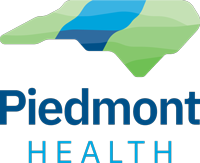Piedmont Health offers dental services at most of its community health centers, but they are not cookie-cutter operations. No two centers have the exact same staff configuration and hours of operation.
Katrina Mattison-Chalwe, dental director for Piedmont Health, acknowledges that the schedule for dental services is a bit complicated, but that’s by design, she says. The method to the madness is that the centers are open when patients need them the most – and that varies by the communities they serve. “We had to alter our schedule to meet our patients’ needs,” Dr. Mattison said. “It took a lot of trial and error.”
Operating hours are not the only way that Piedmont Health tries to meet patients’ needs, of course. Piedmont’s dental services live up to the nonprofit organization’s mission of providing high-quality care at an affordable price. Though the dental program – like Piedmont’s medical care – accepts all forms of insurance, for the insured, fees are based on a sliding scale according to ability to pay for patients without dental insurance. The quality of the equipment and staff is top-notch. For instance, Piedmont has two panorex units, one in the Prospect Hill Community Health Center and the Carrboro Community Health Center. “That is a $40,000 piece of equipment, and it is unusual for a community health center to have it,” Mattison-Chalwe said.
The panorex units, which are used to evaluate the root structure as well as problems with the jaw line, give Piedmont’s dentists enhanced capabilities. For example, if a patient has an accident and suffers fractures in their jaw, dentists are able to see it and diagnose it on site. The units also allow evaluation of wisdom teeth for root structure and proximity to the nerve that is located in the jaw. All of Piedmont Health’s dentists are adjunct faculty at the prestigious UNC School of Dentistry, which is consistently ranked among the top five dental schools in the nation. Piedmont’s dental program is not limited in the care that it offers, Mattison-Chalwe noted. “We have a baby oral health training program and we treat the elderly as well,” she explained. “This makes our age range for treatment from 0-99 plus in terms of patient ages.”
But Mattison-Chalwe likes to point to the varied operating hours of the dental offices as evidence of the special efforts Piedmont makes to serve patients. The Carrboro, Moncure, Siler City and Prospect Hill community health centers all offer the same dental services – from basic services such as cleaning and cavity treatment to more complicated procedures such as root canals and restoration of implants. The only services the centers do not offer are orthodontic work such as braces, Mattison-Chalwe said. Piedmont has seven dentists, three hygienists and 12 support staff.
While the services are the same, the schedules are anything but. Carrboro is the most straightforward, open 8 a.m. to 5 p.m. Monday through Friday – though even Carrboro has a slight twist with a hygienist on duty two Saturdays a month. Moncure and Siler City are closed Friday but stay open until 8 p.m. on Thursday. Prospect Hill’s hours are 8 a.m. to 6:15 p.m. Monday through Thursday. Add in the fact that two of Piedmont’s seven dentists float between centers, and you have a mix of operating hours and times when services are available that resembles a train schedule. The variations stem from the differences in the communities where the health centers are located. Carrboro is in a fairly urban area, just down the street from the bustling Franklin Street corridor of the University of North Carolina. Prospect Hill lies in a rural area amid sprawling farms, while Siler City has more of a small town feel. Moncure is rural but fast growing.
Mattison-Chalwe began efforts to tailor dental services to each community after becoming Piedmont’s dental director in 2011. Then, the centers all had the same schedules, including all being closed on Friday – as many dental practices are. By analyzing patient use for more than a year, Mattison-Chalwe realized that different centers had different usage patterns by patients. For instance some had most of their traffic in the morning, others had patients rushing in for care before the centers closed for the day. “It may be the different types of jobs people have in those communities,” Mattison-Chalwe said. “Each community health center has its niche, and that makes it work. We just tried to do what works best for patients.”
For Roxboro resident Kathy Chavous, the flexible hours at the Prospect Hill Community Health Center are a big benefit. As a student – she is finishing up her B.A. degree at Strayer College – her availability for dental appointments can vary, and can change according to her class schedule. “The early morning hours work best for me because of school,” she said. “But sometimes I have to go in the afternoon. Their hours make it convenient for me.” The flexibility is not all Chavous likes about Prospect Hill’s dental services, though. “I’m a very satisfied customer,” she said. “Dr. [Audrey] Kemp is an excellent doctor. And they always greet me with a smile.”
